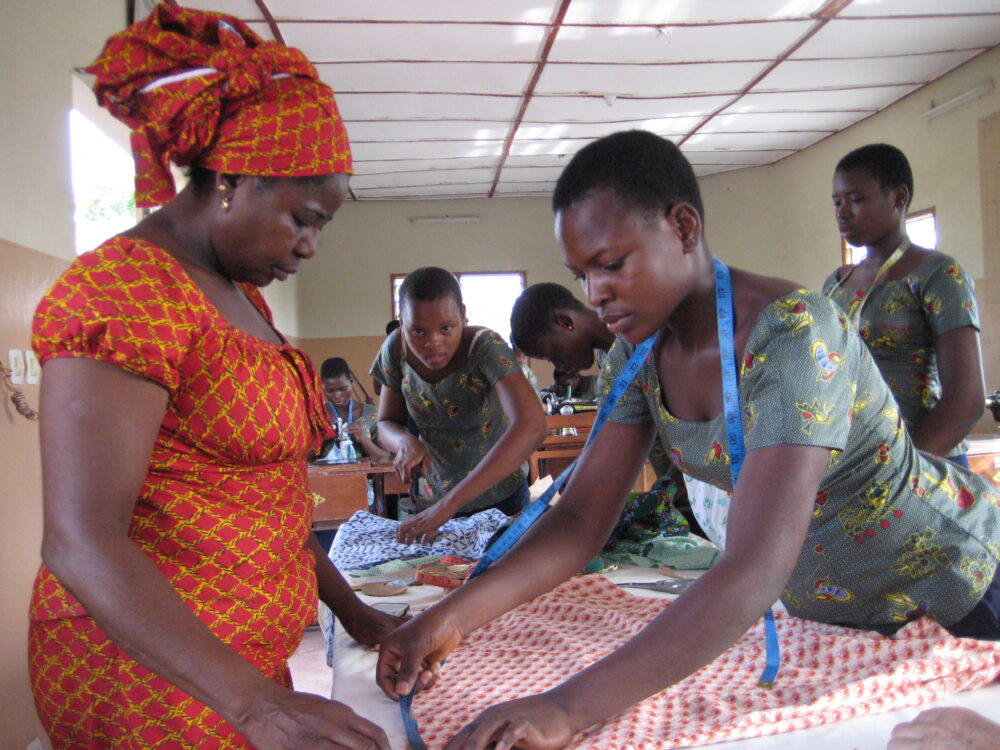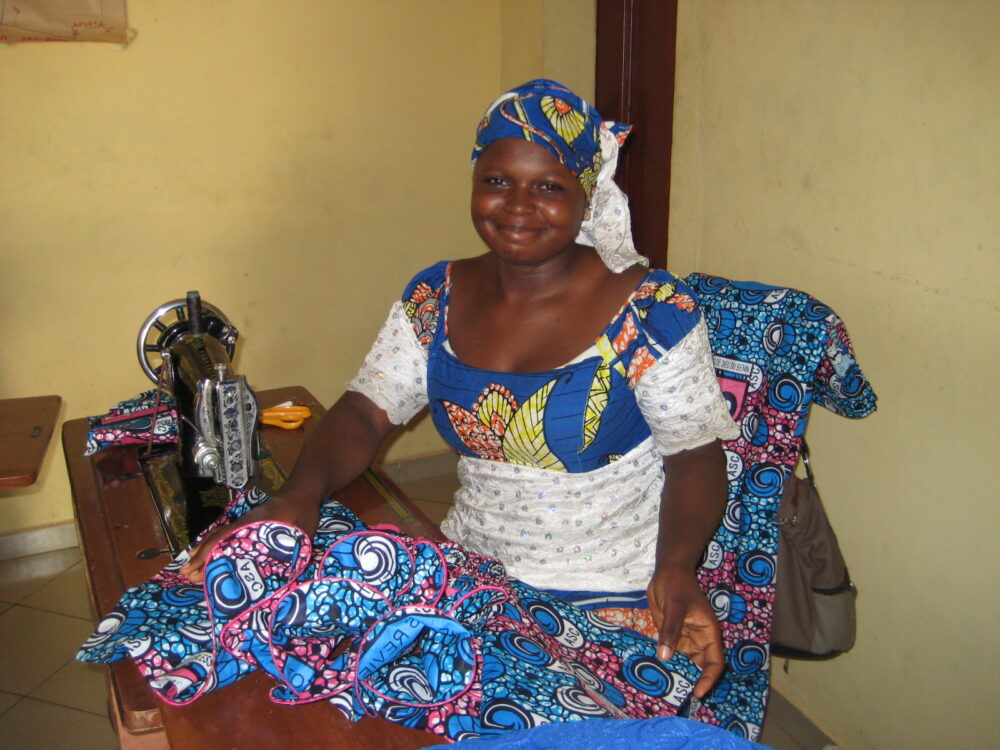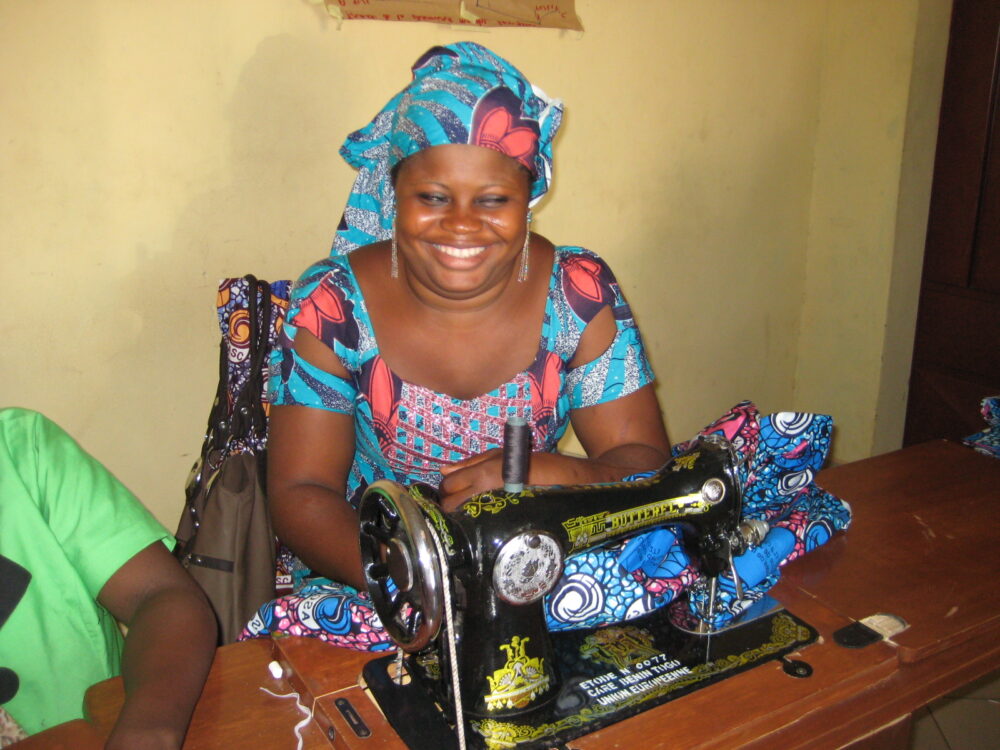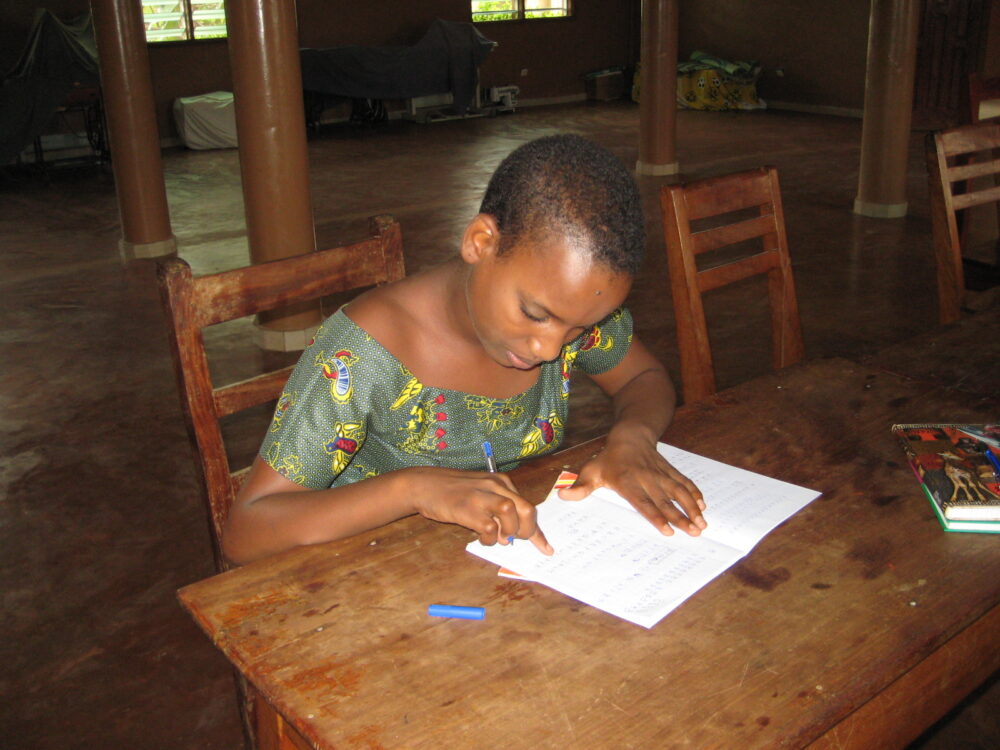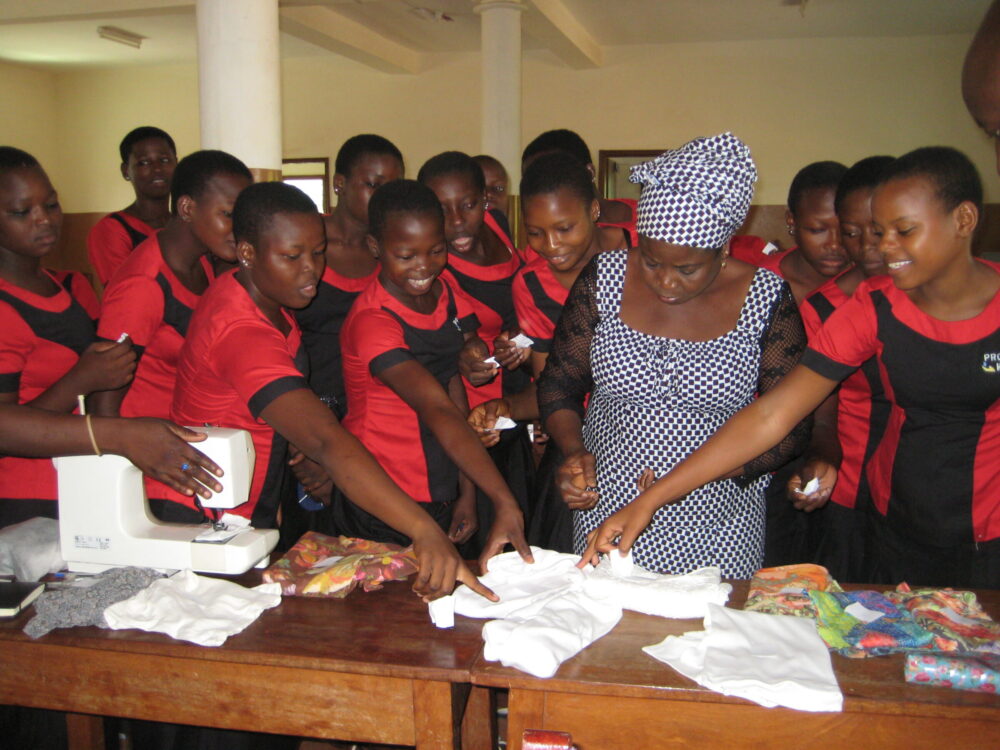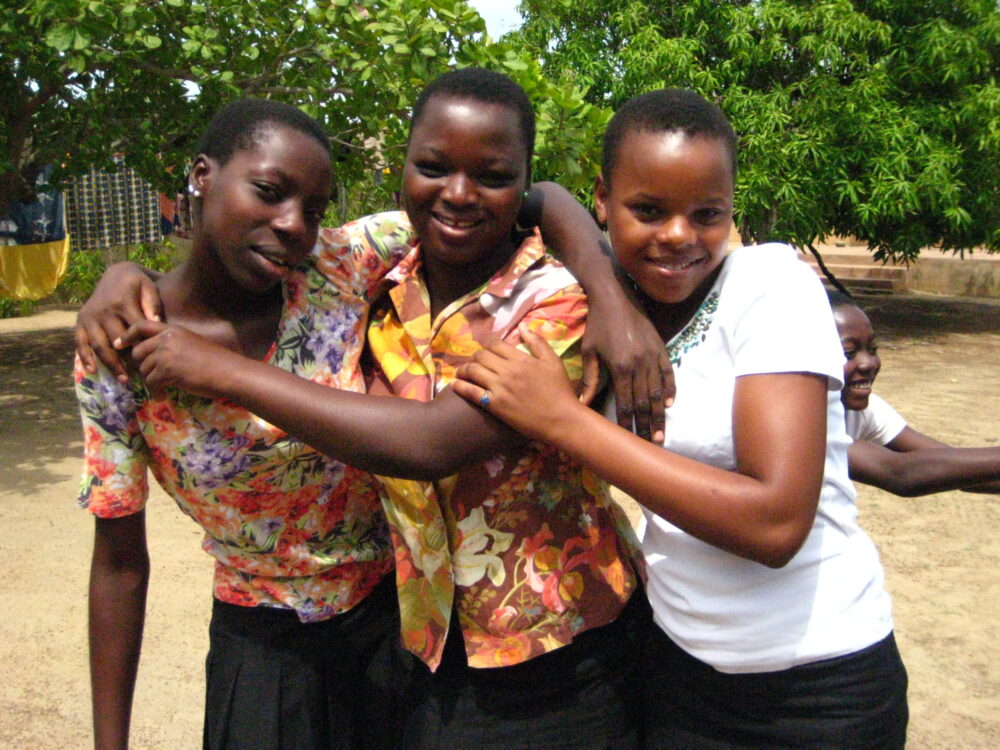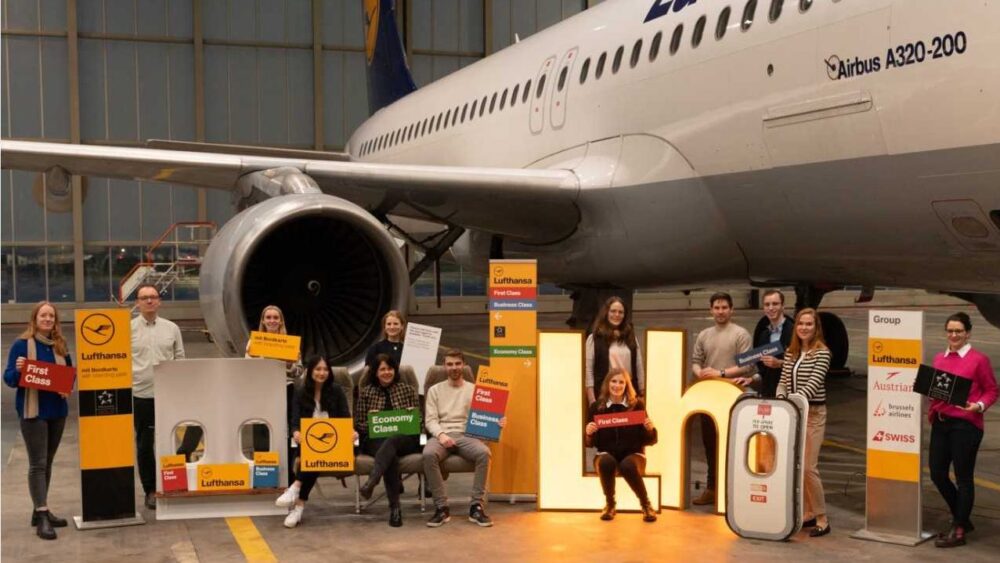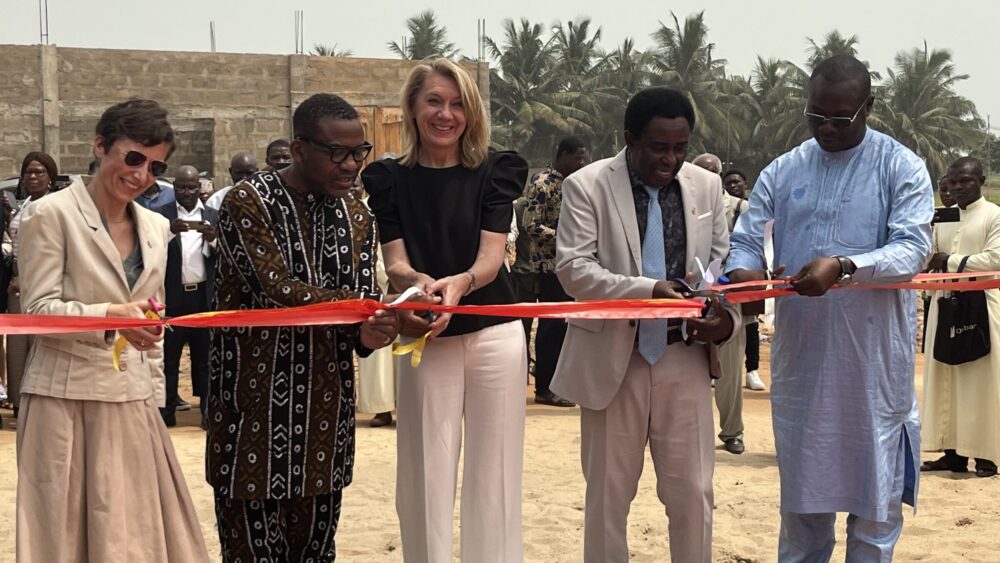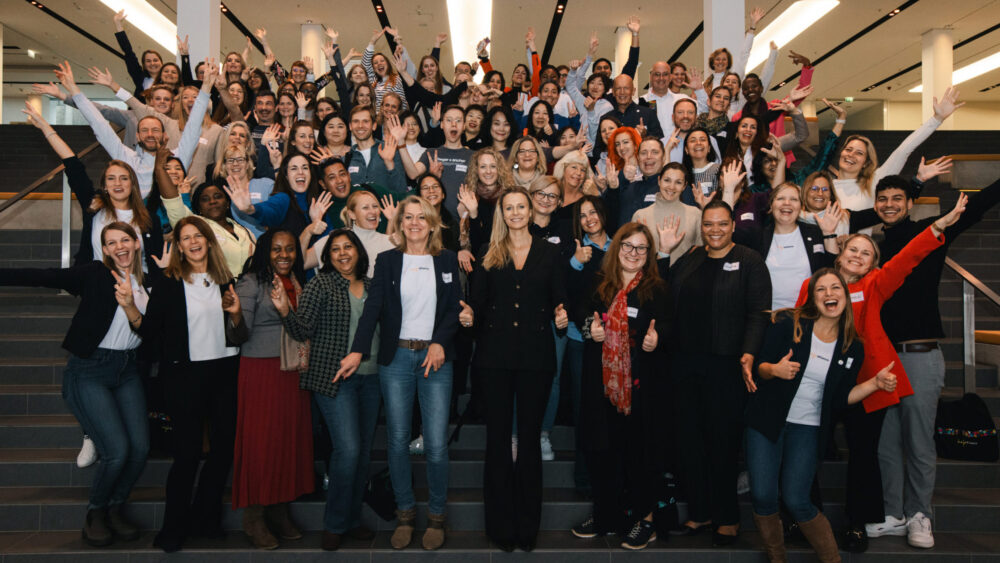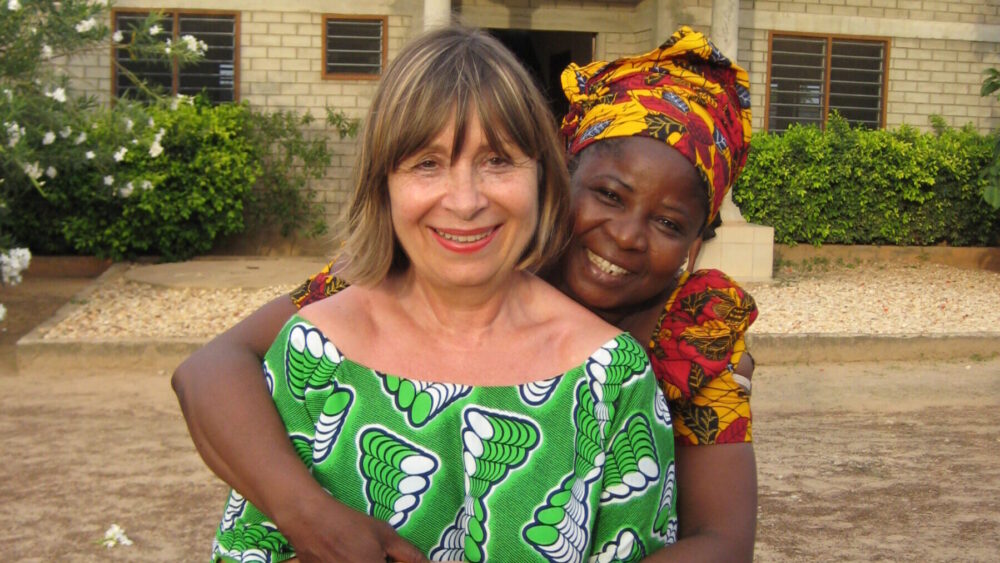
Abéni was my vocation
In conversation with Hildegard Humpert
Hildegard Humpert, retired Lufthanseatin, founding member of help alliance and committed project coordinator of the Abèni project in Benin, talks about her project in our interview.
What did you do at Lufthansa?
I started working for Lufthansa in 1971 in the Lufthansa city office in Bonn. At that time we were responsible for the travel of the German government but also for the support of other customers and customer relations. When the office closed in 1996, Passage Sales moved to the head office in Cologne-Deutz. After the head office also moved to another building in 2007, the Passage was outsourced again and I worked in an office in Cologne-Ehrenfeld for another 3 months until I entered the passive part of the part-time retirement scheme.
How did you come to your project?
It started in 1989 in the city office in Bonn. I got a call from Caritas Bonn that a young man from Benin was sitting in their office, whose return flight ticket, money and passport had been stolen. They asked if we could help him. A little later this man was sitting with me and he told me that he had been travelling with a friend and together they wanted to see the big wide world. On the train from Paris to Germany his bag with all his documents and money was stolen. I tried to clear up the problem for him. I sent faxes to Air Afrique in Cotonou, Benin. But they told me that his return ticket was cheaper than the one-way ticket and so they could not issue a replacement ticket. I told him that unfortunately it was impossible and there was nothing I could do to help him. Nevertheless he kept calling my office and asking for help. After I told him several times that I could not help him, a friendship developed over some time. Noua Dhyne Moustapha stayed in Germany for a long time and only returned to Benin when his father died and he had to take over as head of the family.
In 1993 I visited him for the first time in Benin. I could never have imagined what was waiting for me there. Together with Dhyne I drove in a packed shared taxi the almost 500 km from the capital Cotonou to Djougou in the north of Benin. It was hell.
“No adults, no money, but still a lot of joy in life”
In Djougou I met the current head of the tailor’s workshop for the first time. I was both shocked and surprised by what I saw there. With her 18 years Nadyath took care of a dozen children and adolescents. No adults, no money, but still a lot of joy of life.
There I met Abèni, Dhyne’s daughter. Her mother lived with another man in Togo, and since the 7-year-old Abèni was suffering from incurable sickle cell anaemia, she had sent her away to her father’s family. With Dhyne also lived the 3-year-old daughter of his half-sister, who had also left her child there. When the two girls met me they called me mummy immediately.
For me it was immediately clear: I wanted to help. So began my vocation. Over the next few years I sent everything I could: cars full of clothes, kitchen appliances, refrigerators, small furniture, even sanitary equipment (collected from bulky waste) etc. There was a lack of everything, because nobody in the family had a real income. Today one would certainly not do it that way anymore. But back then it cost me a lot of energy and also a lot of money. I am glad that the development sees it differently today, because in terms of energy I would not be able to do it today.
In 1998, when I read the appeal in the Lufthanseat, asking who was socially committed, I got in touch and founded the HelpAlliance e.V. together with the others in 1999.
In January 1999 Abèni died at the age of 14. There had been no chance to save the girl. This was the beginning for me to get socially involved outside the family in Djougou. Within a manageable framework, we offered help for a dozen children in need. A dedicated teacher looked after these children in the afternoons and helped them with their schoolwork. To secure the family’s income we built a small restaurant, which also provided the 12 children with a warm meal per day.
During the tutoring the boys jumped off bit by bit and only the girls stayed, so we decided to focus on girls.
Gradually more and more girls joined the project, so that the rooms were no longer sufficient for the care and we had to build a half boarding school or boarding house.
What was the biggest challenge for you?
Definitely the construction of the boarding house. The building was more expensive than expected. I had applied for an estimate to help alliance and suddenly everything became more expensive: cement, steel, petrol, labour … everybody wanted more money. For me this meant that I had to go to Frankfurt to report to help alliance. I was so nervous and I was so embarrassed. I could hardly sleep, as I saw my project fail. What arguments did I have, except that everything had become more expensive?
Unfortunately there are also problems on site in Benin from time to time. Be it that girls cause trouble and incite others to demand this or that, since the “whites” are rich. Another problem was the forced marriage of one of our project participants. Mouina was promised by her mother to a man as a second or third wife for a little money. Such agreements are binding, and we tried everything to save her from this fate. Unfortunately without success. Early pregnancies were also a problem. We therefore decided to build the boarding house at that time to gain better control over the girls. Dhyne, who now runs the project on site, has established very strict rules and a precise daily schedule for the girls.
Despite some setbacks and the fact that some of the girls didn’t stick with it until the end of their education, I can say as a conclusion that they have enjoyed a great upbringing and education until then. This gives them a completely different self-confidence and enables them to better assert themselves as women in a male-dominated society.
And what was the most beautiful thing you experienced?
The inauguration ceremony of the Boarding House in 2012 and the closing ceremony of the first tailoring course in April 2014 were a great confirmation of our work.
It is also always nice when girls graduate from high school, at best even at the first attempt.
The fact that Rafiath completed her Bachelor’s degree in Business Informatics on December 24, 2014 was a nice Christmas present and made everyone in the project proud.
If you were to draw a conclusion about the last 17 years, what would it look like?
My project now has a really good reputation and there is a long waiting list of girls who want to be accepted. They come from near and far, from the city and surrounding or distant villages.
Parents sometimes want to place their children with us, although they could pay the school fees and uniforms themselves; simply because they see that the children in the project receive a good education. But this is not possible, because we only help children who live in difficult social conditions. Most of them are half or full orphans.
Our girls are highly respected in the city because they behave exemplary and their teachers are very satisfied with their performance.
The parents, guardians or other relatives come to visit once a month. There is then a big talk and problems are discussed.
And it is also very important that although Dhyne is very strict, the girls trust him very much. He is called “papa” by everyone. And he also takes care of his children like a father.

